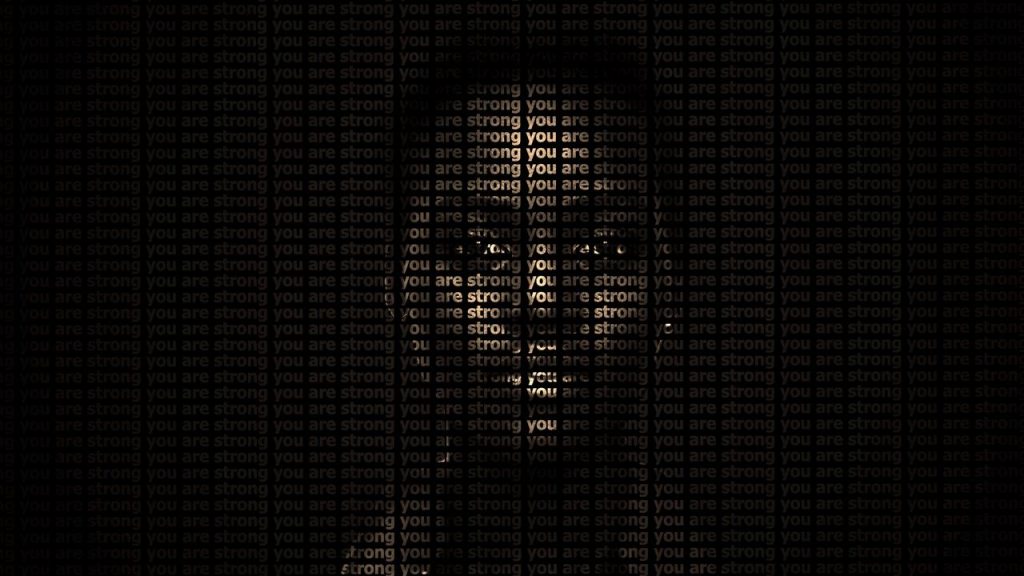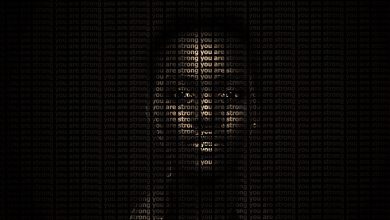Investing in website, blog and e-commerce security has become an indisputable issue in the market today, after all, we are experiencing increasingly digital times and investing in optimized administration guarantees greater profitability and stability. However, dealing with this area can be challenging, as innovations never cease to surprise.
As we know the relevance of this subject. We have prepared a complete and updated guide on the best tips for you to keep your website safe, tools and the fundamental points to be observed when implementing. Let’s go?
What is the importance of website security?
Being aware of navigation risks is a concern of any company that wants to advance in the market digital. After all, the fact is that around 81% of Brazilian customers use the internet as a source of information. For this reason, investing in security should be the #1 concern for better stability in these new times.
This is because when a company suffers a cyberattack, it is not its data that is at stake, but , reputation on the trust it will provide customers. According to a survey carried out by TransUnion, the number of frauds increased by more than 612%, a factor mainly influenced by the pandemic.
Well, the importance of having a secure connection has become the main agenda in meetings of the companies. Factors such as SSL (Secure Socket Layer) certificate provide a standard and mandatory protection to prevent malicious programs or hackers from invading the system and stealing valuable information.
However, having only the SSL certificate does not guarantee greater security. in the digital world and having a greater number of allies makes all the difference. For this, we have separated the main points and will detail each one of them for greater preparation of your institution against possible unforeseen events. In short, the main problems faced by companies in the digital world are:
- malwares: they are malicious software that are mainly used to distribute spam and allow that cybercriminals access the company’s website, confidential customer data and steal sensitive information;
- backlist: situation in which your company’s website can be removed in the Google search results if malware is found. It is a situation that damages your online reputation;
- vulnerabilities: weaknesses that hackers seek to infiltrate the institution’s website. A good example are outdated plugins;
- disfigurement: replacement of your site’s content with other malicious information, coming from the hacker.
What are the main attacks on websites?
There are numerous situations in which website security can be violated. Therefore, we will explain, in the next topics, which attacks occur frequently in order to help you better deal with possible threats.
SQL Injection
The term SQL injection is related to Search Query Language, referring to a type of programming code to take full control of the database and thus extract confidential information. This type of attack can modify, edit and even delete important information from the site, such as user records.
According to information published by Akamai’s State of the Internet/Security Report, there were more than 6.2 million SQL injection attempts in 2021, with a steady increase to 2022. This type of attack is one of the most dangerous that leads to loss of customer credibility, financial losses and totally affect the functionality of the website.
Ransomware
This attack refers to malicious software that infects computers, locks files, applications and entire systems. There are even situations in which, after hackers apply these ransomware, they demand a ransom from the user with negotiation to decrypt and remove this item.
This type of damage has been increasingly common in large corporations such as public hospitals and government agencies in which the lack of knowledge of employees contribute to intrusions into the system. This attack usually comes in the form of a phishing email containing a malicious link. Therefore, never click on them, before checking their provenance.
Cross-site scripting (XSS)
Occurs when malicious javascript code is applied via a trusted website in the browser. It works similarly to SQL injection and, after infection, causes browsers to be unable to differentiate between malicious and harmless text, rendering whichever one receives. Cross-site scripting is mainly used to steal cookies from users, which can steal credentials such as credit card numbers and passwords.
Reuse of credentials
When users’ credentials are stolen, not only is your website affected, but it can cause various damages to other electronic addresses simultaneously with this same information. In this way, when a hacker has access to one of these credentials, he can enter other platforms, since users usually use the same data.
DoS/DDoS Attack
The DoS/DDoS attack aims to interrupt the functionality and stability of the website, and one of the most common forms is the so-called “Distributed Denail of Service” — distributed denial of service — and occurs when a bot sends a vast amount of fake traffic to the same site from multiple sources in order to overload it. This causes the server to timeout and makes the email address unavailable.
Violation of security on the site: what are the impacts?
In addition to causing disruption to your site’s performance, in the short term it can limit traffic and conversions. In the long run, it damages your brand’s reputation in the online market, weakening credibility and weakening possible partnerships with other companies. Understand in detail.
High customer cancellation rate
The first point that customers check before doing any business is security on the site, practicality and service. So any indication that your address is unreliable is gone. It’s critical that your email address is stable and reputable for users to click your CTA (call to action) or make a purchase. Investing in protection against cyber-attacks is ensuring reputation growth and strengthening your brand in the market.
Blacklist in searches
When security on the site is weakened, your email address may be penalized by search engines. That’s because when Google detects malware or malicious code, it can put your site on the blacklist, making it impossible to be found and permanently dropping traffic.
Suspension of the site
Cyber attacks can cause suspension of vital services on websites, from login, registrations and even user interactions. That’s why investing in a robust security system with a renowned hosting service in the market is essential for better results in the digital world in a safe way.
What points are needed to maintain the site secure?
To deal with the challenges mentioned above, having a checklist of the main security tools on the website provides more efficient decision-making in the face of cyber-attacks and guarantees security in the market. Understand what they are.
Always update the software
The basics well done makes all the difference to better online reputation, company development and website security would be no different. Therefore, software update steps, although they seem simple, are crucial to reduce vulnerabilities and, don’t postpone these procedures, although they seem inconvenient, okay?
Also, always check for updates in plugins like CMSs (WordPress), e-commerce stores and other steps to improve security on the site.
Use strong passwords
- This other classic tip. Always make sure that the administrative area for accessing your site is secure and, for that, it needs, at least, to have a mixture of numbers, letters and special characters providing greater difficulty. So, don’t use your or your family’s birth dates.
If necessary, use password generators to create a random model. In addition, make sure that the ones related to access to the hosting panel, the site and other logins are different, in addition to making sure that other people who access your site are careful.
Invest in a good malware detector
As you can see, when it comes to website security, one of the biggest villains is the malware, after all, they are responsible for infecting the records of your email address settings, strongly damaging your company’s online reputation. Having an anti-malware helps to efficiently detect these attacks and get rid of them even before they do any harm.
Be careful with users permission
Do you know how many people have access to your website? This information must be essential for greater security on the site. The fact is that most companies allow their electronic addresses to be accessed by a large number of people for changes and this number increases as the institution grows.
Therefore, to deal with this situation with stability, count on a renowned partnership in the market, mainly with hosting. We at Valuehost have a complete and specialized service on the subject, just check it out!
Backup regularly
You know that saying that “prevention is better than cure”? Making a backup eventually avoids unpleasant situations such as total loss of files due to system intrusions, after all, there is nothing worse than having to start your website from scratch.
Invest in an SSL/HTTPS certificate
This factor is essential, especially for those who work with e-commerce stores. This is because they show customers who access your site the security, which is indicated by the padlock symbol in the bar of your browser. This certificate adds extra encryption security for sharing information between computers.
To understand better, there are several types of SSL certificates. Know what they are:
- SSL certificate: the simplest of all and proves domain ownership;
- SSL certificate with extended validation: it is a model with powerful encryption which has one suitable for more delicate sites with online payments;
- SSL certificate with organizational validation: used for non-profit institutions;
- SAN SSL certificate: ideal for those who have multiple certificates on multiple sites , however, with a lower value for the optimization of several domains of a company;
- SSL Wildcard certificate: it is a premium model which guarantees the protection of subdomains through HTTPS protocols.
HTTPS stands for hypertext and refers to an implementation of the HTTP protocol, functioning as a second layer of security. Thus, it allows you to obtain resources such as HTML and, if your website in the address tab is showing only the “HTTP” without the “S”, it means that the information is not being encrypted and can be easily stolen.
Close all vulnerabilities
As we discussed initially, hackers are always on the lookout for some loophole that your company can leave for the invasion. And, as soon as this flaw is detected, they start to act. The most common attacks that we can cite are:
- SQL injection: this flaw gives access to important information located in the data store such as card number of customers registered in e-commerces;
- XSS (Cross Site Scripting): these are weaknesses related to breaches and facilitate the invasion and alteration of any O s site.
We have already advised that this step is more technical and for better information, it is crucial to contact a professional of cybersecurity for better answering of doubts.
Avoid hosting too many sites on a single server
Another smart alternative is to place important sites on different servers so that it is possible to create a separate database between them. In this way, in addition to increasing security on the site, it will be more fluidly optimized when dealing with possible problems if a hacker invades any of them.
There is increasing discussion on how to create data security efficiently that, even in 2021, the General Law for the Protection of Personal Data (LGPD) came into force to bring greater guarantee to customers’ personal data.
After all, how to maintain this security?
In addition to understanding the points necessary for website security, we have separated the best tips to assist in your implementation journey. Factors such as secure hosting, CAPTCHA and error messages are just a few examples for you to always be aware of. Learn more.
Site Hosting
This is one of the main points that should not be neglected. Having secure hosting and a specialized service makes all the difference to avoid inconveniences with cyber attacks. Therefore, if you are more consolidated in the market and want your e-commerce or more robust website to have efficiency and guarantee in the world of networks, prioritize services such as:
- virtual private server (VPS): ideal for administrators of many websites, e-commerces or blogs with exponential growth;
- dedicated server: offers good expansion and customization capacity and access to all present resources belong only to the contractor, ensuring greater security on the site;
- cloud hosting: famous cloud , propose a more decentralized construction. At Valuehost, you will find this possibility with greater security and quality.
It is worth remembering that free and shared hosting models are indicated only for starters. In cases for greater security on the site against malicious attacks, invest in more robust servers. In addition, when choosing, do not be guided only by price, after all, some companies can offer an attractive value and fail to protect against malware and hackers.
Understand how CAPTCHA works
The fact is that, for sure, we all access — at least once in our lives — with a CAPTCHA form either at login time, or filling in data, isn’t it? This term means “Completely Automated Public Turing test to tell Computers and Humans Apart”, therefore, it is part of a cognitive test to assess whether the command comes from a human or robot (a feature widely used by hackers).
Therefore, it serves as a kind of test and implementing it on your website is fundamental and, although it seems an irritating measure, it avoids unpleasant situations such as excessive production of spam comments on the website and providing a better user experience.
Remove plugins which you no longer use
The ideal for better security on the site is its total efficiency and that goes for plugins too. Mapping all resources that are not used greatly reduces the openings and vulnerabilities of your site against hackers. A fundamental tip is to understand the functionality of each tool for this decision making, in addition to better optimization.
Have WordPress always updated
Not only keeping an eye on plugins, but always updating WordPress makes all the difference in protecting against cyber attack. After all, this factor directly interferes with the server’s operating system, such as the CMS — Content Management System, a tool that allows you to organize, publish and delete content from your site.
Configure users profile
Even if you close all loopholes, hackers can still gain access to your site with user registrations. So, if you have IP recorded and with the activity history, keep track of who has access, after all, not all employees who have access to the site need to have access to everything. This measure favors greater control by preventing anyone from modifying or installing an application related to the website code.
Have a main platform with third-party updates
For greater security on the site, the ideal is to create it on a platform that is monitored 24 hours a day and 7 days a week, so that any small irregularity does not go unnoticed . In addition, being aware of third-party applications is also essential, after all, if any of them have irregularities, they can harm by violating information on several sites at once.
To avoid situations such as this, having an integrated system with its own resources avoids dependence on third parties.
Establish administrative privileges
As the site grows, the responsibilities for management will be greater and, therefore, it will be essential to establish different levels of access. Therefore, carefully evaluate your team and who will be delimited in each role. Also, develop a security policy for all administrators so that security on the site is factor number 1.
Change the default CMS setting
Not changing the default CMS (Content Management System) settings helps hackers to break into the site easily . Start by changing user settings, assigning different privileges to each administrator. Thus, you will make cyberattacks more difficult because it will be more difficult for these criminals to understand the system.
How to invest better for website security?
One of the points crucial — especially for those who are starting to implement security on the site — is to understand how to protect your server well and the importance of training on cybersecurity in companies — this is because this step is complex, and it is important to have a specialized partnership.
As technology advances, the more tools hackers have at their disposal and, for this reason, preparation must be constant. This is because the weakest link does not come from outside, but from employees who often do not know how to deal with situations of these proportions.
Therefore, in order to develop effective security, it is necessary to track errors efficiently and properly maintained on the server, since these are the environments that store your company’s information. In short, to have an effective result in security, the following issues are observed:
- storage of passwords and other sensitive information through the intranet;
- server software always up-to-date;
- enabling only two essential services to the operating system, to prevent unnecessary programs from causing traffic on the server;
- review of server access logs to identify possible intrusion attempts;
- constant antivirus updates;
- to prepare a routine to periodically change passwords or service default keys.
In addition, investing in cybersecurity promotes greater cost savings, bringing maximum efficiency, in addition to optimizing space for using only what is necessary to better define strategies and solve problems in real time. This also allows employees to be more and more aligned.
You have seen our complete guide so far on how to best implement security on the site, in addition to the main risks that you need to be aware of with the issue of cyber attacks. In addition, constant updating on innovations in this regard will be crucial for employee training.
Would you like to know more about how to implement your website’s security effectively, with great cost-benefit and hassle free? So, contact us right now and learn more!









